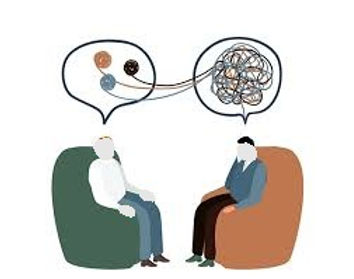The Power of Self-Awareness:
- Feb 27
- 2 min read
Updated: Jun 15
Self-awareness is one of the most profound tools for personal growth. It allows us to understand our emotions, recognize our strengths and weaknesses, and refine our character. From a Torah perspective, self-awareness is not just a modern psychological concept; it is deeply embedded in our spiritual journey. In fact, the very first recorded interaction between Hashem and a human being serves as a lesson in self-awareness. This fundamental lesson is embedded in the very fabric of our existence, urging us to continuously reflect on our spiritual standing. We find this when Hashem calls out to Adam after he sins:
וַיִּקְרָ֛א יְהֹוָ֥ה אֱלֹהִ֖ים אֶל־הָֽאָדָ֑ם וַיֹּ֥אמֶר ל֖וֹ אַיֶּֽכָּה — "And Hashem called to the man and said to him: 'Where are you?'" (Bereishis 3:9).
This verse is not merely a question about Adam’s physical location; rather, it is an existential call for self-awareness. Hashem, who knows everything, obviously did not need Adam to tell Him where he was. Instead, this was a call for Adam to reflect on where he stood in his own spiritual and moral state.
The Call of 'Ayekah' – A Lifelong Question
The Baal Shem Tov explains that Ayekah—"Where are you?"—is a question that Hashem asks every person throughout their life. It is not just about Adam in Gan Eden; it is about each of us. Hashem asks, “Where are you in your journey? Are you living up to your potential? Are you on the path of truth and growth?”
Often, people avoid this question. It is easier to focus on external distractions than to honestly assess where we stand. But true self-awareness requires us to pause, listen, and answer this call.
When Adam and Chava realized they had sinned, they hid from Hashem among the trees. This response symbolizes what many of us do when confronted with
discomforting truths about ourselves—we hide.
Sometimes, we justify our actions instead of taking responsibility.
Sometimes, we blame others instead of looking inward.
Sometimes, we distract ourselves rather than facing our struggles directly.
But hiding never solves the problem. Hashem calling Ayekah teaches us that the first step to self-improvement is to stop hiding and confront where we truly are.
Self-awareness leads to:
Teshuvah (Repentance): When we recognize where we have gone off track, we can correct our course.
Better Relationships: When we understand our patterns and triggers, we can interact more positively with others.
Closeness to Hashem: The more we know ourselves, the deeper our relationship with Hashem becomes.
Without awareness, there is no growth.
Each day, we should ask ourselves:
Where am I in my personal growth?
What are my strengths, and where do I need improvement?
Am I being honest with myself about my actions and intentions?
This process of reflection is the essence of חשבון הנפש. Making self-awareness a regular practice helps us stay aligned with our spiritual and personal goals.
Hashem’s question to Adam—Ayekah—is not a one-time event. It is a timeless call for every person to step back and examine their path. Instead of running, we should embrace this question, knowing that the more self-aware we become, the more opportunities we have to grow, connect, and fulfill our potential.



